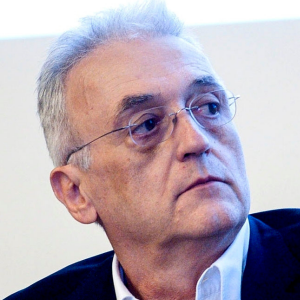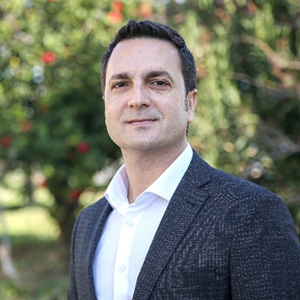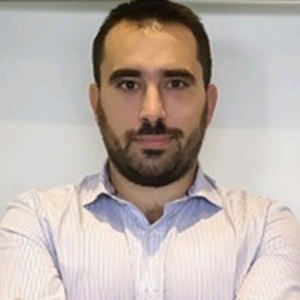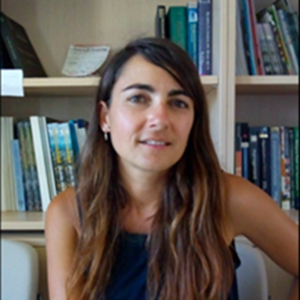
Online on December 4, 2024

Nebojša Nešković
Vice President, World Academy of Art and Science (WAAS); Full Member, The Club of Rome; President, Serbian Chapter of The Club Of Rome; Member, Steering Committee, The Earth-Humanity Coalition
Introduction
In August 2023, the UN General Assembly proclaimed the International Decade of Sciences for Sustainable Development, from 2024 to 2031. The task to lead the preparation and implementation of the activities within the Decade was given to UNESCO. On April 16, 2024, The Earth-Humanity Coalition was founded – as an association of global, regional, and national scientific organizations with the task to prepare and implement, in close cooperation with UNESCO, various initiatives within the overall program of the Decade. WAAS was among the founding Members of the Coalition. It had initiated a program of sciences for sustainable development, which became a specific initiative of the Coalition. The WAAS Talks on Science for Humans Security: Measuring Sustainability is the fifth webinar within the Program. The reports on the previous webinars can be found on the WAAS website, page Events.
Moderator

Phoebe Koundouri
Athens University of Economics and Business, Greece & Technical University of Denmark, Kongens Lyngby; Chair, World Council of Environmental and Natural Resource Economists Associations; Chair, SDSN Global Climate Hub; Chair, AE4RIA, Athens, Greece; Trustee, WAAS.
Overview
As global interest in sustainability continues to grow, there is an increasing need to accurately measure and assess sustainability across different scales, from individual projects, companies, and institutions to cities, regions, and countries. Effective measurement is critical for tracking progress, identifying areas for improvement and ensuring accountability. However, the complexity and diversity of sustainability metrics pose significant challenges. The webinar aimed to explore various approaches and tools used to measure sustainability at different scales.
Novel models holistically measure and monitor all aspects of Human Security at various levels. Machine learning techniques offer powerful tools for measuring controversies relative to the data disclosed by authorities. By leveraging advanced algorithms and vast datasets, machine learning can analyze patterns, trends, and anomalies in disclosed information, providing deeper insights into contentious issues. These techniques can efficiently process and interpret complex data from various sources, such as social media, news articles, and public records, identifying underlying sentiments and potential biases.

Talks

Bariş Salihoğlu
Director, Institute of Marine Sciences, Middle East Technical University, Erdemli, Mersin, Turkey
Integrating Regional Sea Innovations for Human Security: One Health, Digital Twin Oceans, and Multipurpose Platforms
Abstract
The Black Sea region presents unique opportunities to address human security through innovative projects and integrated approaches. The talk was devoted to exploration of the Connect Black Sea Project, emphasizing its alignment with the One Health framework, which connects human, environmental, and animal health for holistic resilience. The consideration then transitioned to the Bridge Black Sea Project, showcasing its role in advancing the Digital Twin Ocean concept – leveraging digital models to monitor, predict, and protect the marine ecosystems and services they provide for humans. Finally, multipurpose offshore platforms, illustrating their potential to simultaneously enhance food security, energy security, and human health were highlighted in the talk. Together, these initiatives offer a blueprint for comprehensive solutions that strengthen resilience and sustainability for the Black Sea and beyond.


Kostas Dellis
Senior Researcher, Research Laboratory on Socio-Economic and Environmental Sustainability (ReSEES), Athens University of Economics and Business, Greece; Alliance of Excellence for Research and Innovation on Aephoria (AE4RIA) Network
Cross-Country Metrics for Comprehensive Human Security Assessment
Abstract
The Cross-Country Metrics for Comprehensive Human Security Assessment project aims to establish a standardized framework for evaluating human security across nations. Human security, a multifaceted concept encompassing economic, food, health, environmental, personal, community, political, and technological dimensions, remains critical to global well-being. This initiative seeks to develop a comprehensive and harmonized set of indicators to assess these dimensions, building upon key performance indicators (KPIs) for the 169 Sustainable Development Goal (SDG) targets and 247 associated indicators, while expanding to address the broader scope of human security. A holistic framework will guide the project, integrating diverse data sources and leveraging machine learning (ML) techniques to enhance data analysis and indicator development. ML methods will be applied to identify patterns in existing data, support the refinement of targeted indicators, and link policy documents, reports, and scientific literature to specific dimensions of human security.


Alice Guittard
Researcher, Sustainable Development Unit, Athena Research Center, Greece; Alliance of Excellence for Research and Innovation on Aephoria (AE4RIA) Network
Measuring Sustainability in the Blue Economy: Remaining Gaps
Abstract
Data is critical to monitor and measure progress towards sustainability, ensuring economic development that do not harm the environment while leaving no one behind. Looking at the case of Blue Economy, human activities have been developing exponentially creating multiple pressures on the marine environment. Overfishing, biodiversity loss, marine litter, chemical and nutrient pollution, and invasive species are directly impacting the health of marine ecosystems, vital for billions of people. A robust sustainability measurement system for the Blue Economy is therefore critical to preserve the oceans and support the well-being of coastal communities while boosting economic development. However, the major gaps remain in effectively tracking all components relevant for sustainable maritime activities. First of all, we do not have at hand an overarching framework capable of truly monitoring the development of maritime activity within the lens of the three sustainability pillars – environment, economy, and society. The Sustainable Development Goal (SDG) 14 indicators are a good starting point; they essentially tackle the environmental aspects with a focus on the impact of fishing activities. The European Blue Economy Observatory is another monitoring initiative to assess the sustainable development of the Blue Economy in the European Union (EU). Here, the indicators used remain in the field of economy and fall short of tracking the social and environmental impacts of maritime activities; therefore, the gaps still remain with regard to a holistic framework. The second major challenge is data availability and accessibility. The collection of socio-economic data on the blue sectors is not always standardized at the national level while much of the data which does exist are not necessarily publicly available. Localizing and accessing this data can be a true endeavor. As part of the EU H2020 funded BRIDGE-BS project, AE4RIA is currently developing the Blue Economy Observatory for the Black Sea, with the aim to capture the progress in sustainably developing the blue sectors in the region through a digital platform. This experience perfectly illustrates the complexity of measuring sustainability across multiple countries with no pre-existing agreement on a sustainability framework, despite sharing a common resource. A lack of awareness of the benefits of having a robust sustainability monitoring system, but also a lack of capacity within the national statistical agencies and mistrust among the partners at all levels are among the main barriers that can be overcome through a strong political commitment to sustainably develop the blue economy sectors.


Yannis Ioannidis
National and Kapodistrian University of Athens, Greece; President, Association for Computing Machinery, New York City, NY, USA
Digital Technologies for Human Security and Sustainability
Abstract
Digital technologies are essential for addressing global challenges related to human security and sustainability, encompassing economic stability, environmental preservation, and social well-being. The interplay between data, computational infrastructures, and ethics deserves our particular attention for achieving sustainability. By leveraging advanced data collection and analysis techniques, we can monitor critical metrics such as resource consumption, energy distribution, greenhouse gas emissions, and biodiversity health. Technologies like Internet of Things, Artificial Intelligence, Big Data, and everything else appearing in data science pipelines optimize resource use, reduce waste, and promote transparency in all processes and supply chains, enabling evidence-based decisions to tackle environmental, economic, and social issues. Resilient and robust infrastructures are essential for implementing sustainable practices and adapting to global challenges, but they also benefit from these innovations, with smart cities, early warning systems, and digital twins that allow dynamic adaptation to environmental and societal needs. Digital platforms also empower communities through improved governance, enabling participation in sustainability efforts and expanding access to financial services that reduce vulnerabilities. In the above context, ethical challenges are immense: data privacy, sovereignty, security, and the digital divide must be addressed to ensure inclusive benefits from these technologies. Bridging inequalities in access to digital tools is critical to maximizing their potential. This is where the United Nations’ Sustainable Development Goals (SDGs) come into play. Ethical and sustainable digital technologies must closely align with the SDGs, to accelerate the process towards their achievement. For all the above, interdisciplinary scientific collaboration is necessary in transparent and globally coordinated efforts to align sustainability measurements with actionable strategies for human security.

